
Liege: The Heartbeat of Wallonia
Liege, nestled in the heart of Wallonia, is a city that effortlessly blends history with modernity. Known for its vibrant culture, picturesque riverside views, and rich industrial past, Liege offers a unique experience for every traveler. The Meuse River runs through the city, providing a scenic backdrop for many of its attractions. The city's historic center is a treasure trove of medieval architecture, with the Cathedral of Saint Paul and the Palace of the Prince-Bishops standing as iconic landmarks. Wander through the charming streets, where you'll find bustling markets, quaint cafes, and an array of shops offering local goods. Liege is also famous for its lively nightlife and gastronomic delights. The local cuisine, including the famous Liege waffles, will tantalize your taste buds. The annual festivals and events, such as the vibrant Nocturne des Coteaux, add to the city's lively ambiance, making it a must-visit destination in Belgium.
Local tips in Liege
- Visit the Sunday Market at La Batte for local produce and unique finds.
- Climb the 374 steps of Montagne de Bueren for a panoramic view of the city.
- Explore the Museum of Walloon Life to get a deeper understanding of the region's culture.
- Try the local specialty, Boulets à la Liégeoise, at one of the city's traditional restaurants.
- Take a boat tour on the Meuse River for a different perspective of the city.
Neighbourhoods in Liege
Liege: The Heartbeat of Wallonia
Liege, nestled in the heart of Wallonia, is a city that effortlessly blends history with modernity. Known for its vibrant culture, picturesque riverside views, and rich industrial past, Liege offers a unique experience for every traveler. The Meuse River runs through the city, providing a scenic backdrop for many of its attractions. The city's historic center is a treasure trove of medieval architecture, with the Cathedral of Saint Paul and the Palace of the Prince-Bishops standing as iconic landmarks. Wander through the charming streets, where you'll find bustling markets, quaint cafes, and an array of shops offering local goods. Liege is also famous for its lively nightlife and gastronomic delights. The local cuisine, including the famous Liege waffles, will tantalize your taste buds. The annual festivals and events, such as the vibrant Nocturne des Coteaux, add to the city's lively ambiance, making it a must-visit destination in Belgium.
When is the best time to go to Liege?
Iconic landmarks you can’t miss
Parc Boverie
Discover the beauty and art of Parc Boverie, Liège's serene state park, perfect for relaxation and cultural exploration amidst nature.
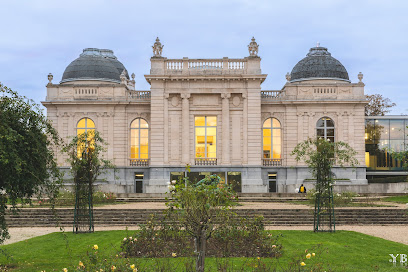
Montagne de Bueren
Discover the breathtaking views and rich history at Montagne de Bueren, a must-see attraction in Liège, Belgium.
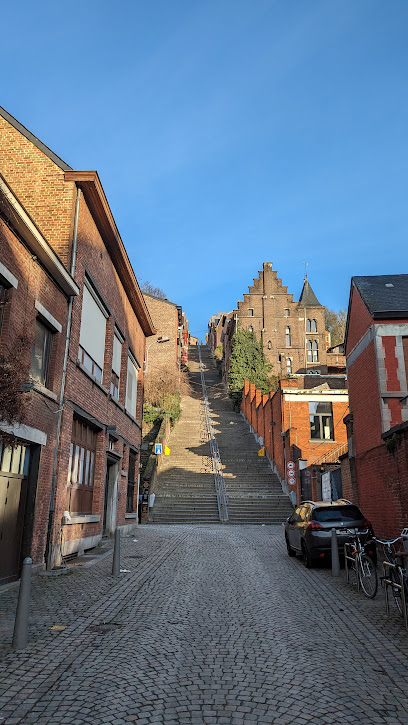
Place Saint-Lambert
Discover the vibrant Place Saint-Lambert in Liège, Belgium, a historic square brimming with culture, stunning architecture, and local delights.
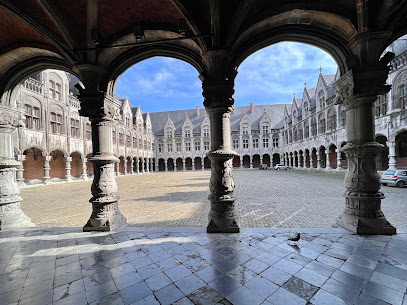
St. Paul's Cathedral in Liege
Discover the architectural splendor and historical significance of St. Paul's Cathedral in Liège, a Gothic masterpiece that captivates every visitor.
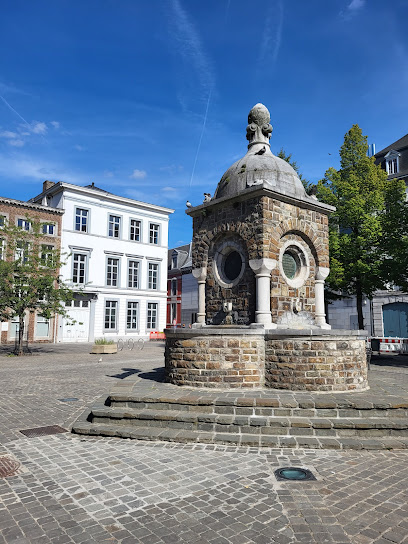
Opéra Royal de Wallonie-Liège
Experience the grandeur of the Opéra Royal de Wallonie-Liège, a cultural landmark offering captivating performances and stunning architecture in the heart of Liège.
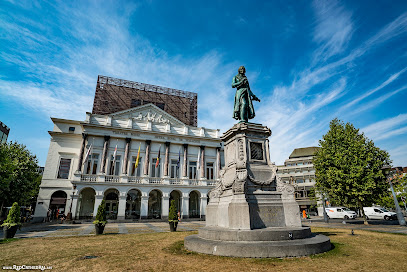
Liege-Guillemins
Explore Liège-Guillemins, an architectural masterpiece and major transit hub that connects you to the best of Belgium and beyond.
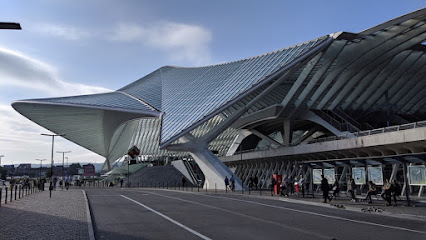
La Cité Miroir
Explore La Cité Miroir in Liège: A vibrant art center showcasing contemporary works and rich cultural events in a historic setting.
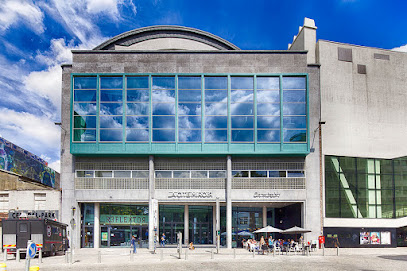
Le Grand Curtius Museum
Explore the heritage of Liège at Le Grand Curtius Museum, where history, art, and culture come together in a stunning architectural setting.
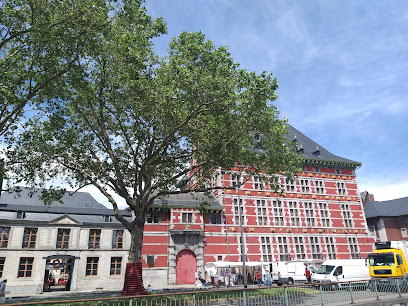
Museum of Walloon Life
Explore the vibrant culture and history of Wallonia at the Museum of Walloon Life in Liège, a must-visit destination for tourists seeking authentic local experiences.
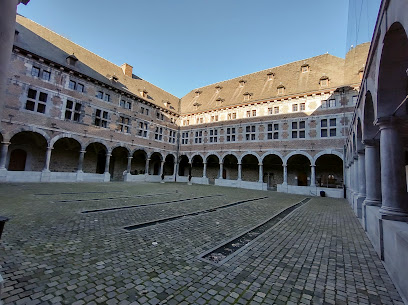
Pont de Fragnée
Explore the Pont de Fragnée in Liège, a stunning bridge that perfectly combines elegance and history, offering breathtaking views and a glimpse into local culture.
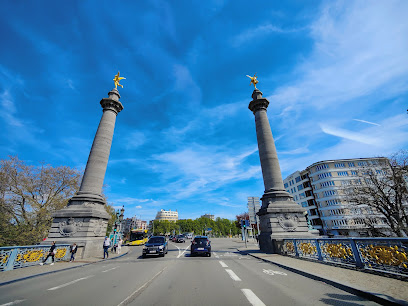
Parc de la Citadelle
Experience the tranquility of Parc de la Citadelle, Liège's serene urban park with lush greens, stunning views, and recreational activities for everyone.
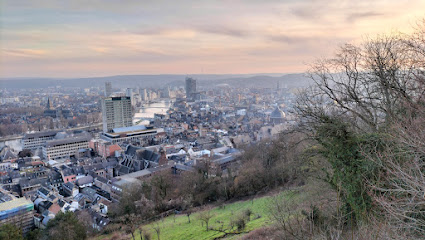
Citadel of Liège
Discover the historic Citadel of Liège, a fortress offering breathtaking views and a rich tapestry of cultural heritage.
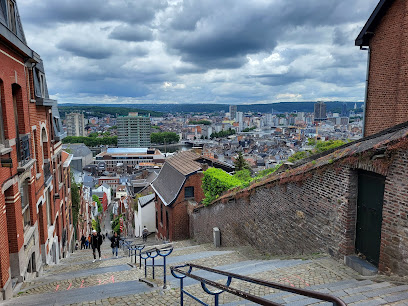
Fort de la Chartreuse
Discover the rich history and breathtaking views at Fort de la Chartreuse, an iconic fortress in the heart of Liège, Belgium.
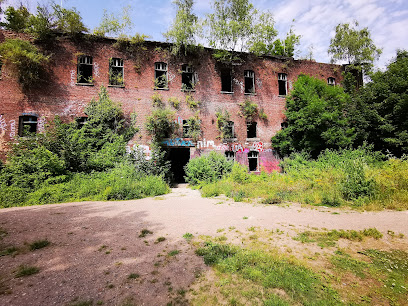
Church Saint-Jacques
Explore the historical and architectural beauty of Church Saint-Jacques in Liège, a must-visit destination for cultural enthusiasts.
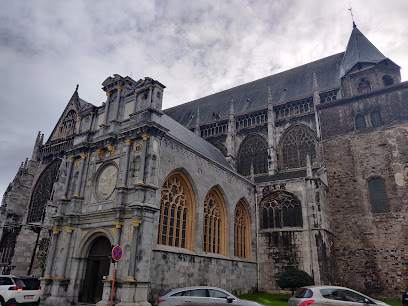
Archéoforum
Explore the Archéoforum in Liège, where ancient history and archaeological wonders await in an interactive museum experience.
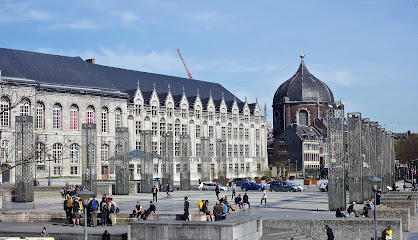
Unmissable attractions to see
Aachen Cathedral
Discover the architectural splendor and historical richness of Aachen Cathedral, a UNESCO World Heritage Site and a must-see in Germany.
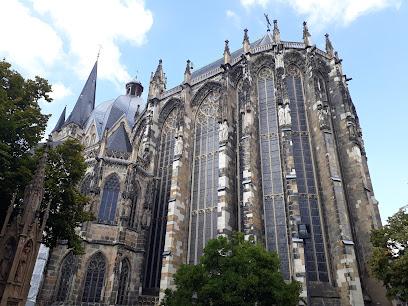
Book Store Dominicanen
Discover the enchanting Book Store Dominicanen in Maastricht, a unique blend of literature, history, and culture within a stunning former church.
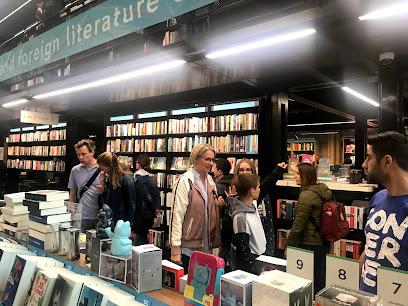
Labyrinth Three Countries Point
Experience the magic of the Labyrinth at the Three Countries Point, where nature, adventure, and culinary delights converge in a captivating setting.
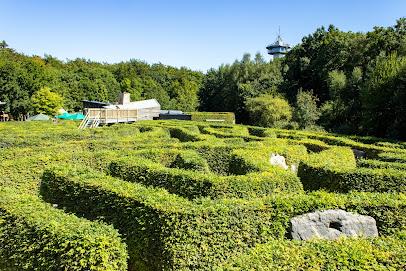
Parc Boverie
Discover the exquisite beauty and cultural richness of Parc Boverie, a serene haven in Liège, perfect for relaxation and exploration.
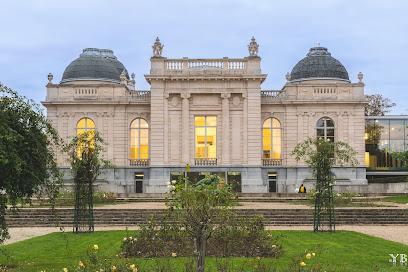
Carolus Thermen
Experience ultimate relaxation at Carolus Thermen, Aachen's luxurious thermal spa offering rejuvenating baths and wellness treatments amidst serene surroundings.
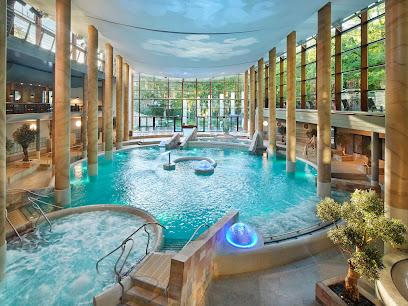
Elisenbrunnen
Discover Elisenbrunnen, a stunning historical fountain in Aachen, showcasing neoclassical architecture and a rich cultural heritage.
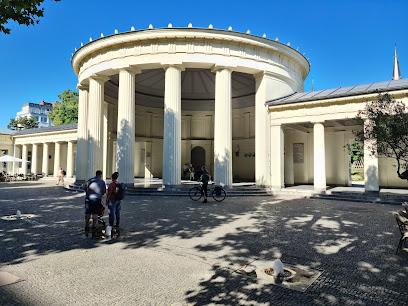
Gemeentegrot
Unearth the hidden treasures of the Gemeentegrot, a stunning limestone cave system in Valkenburg, rich in history and natural beauty.
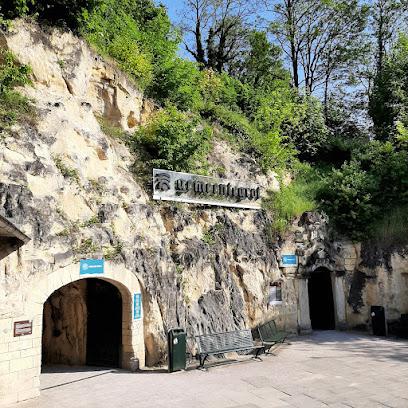
Thermae 2000
Experience ultimate relaxation at Thermae 2000, Valkenburg's premier wellness center with natural thermal baths and rejuvenating spa treatments.
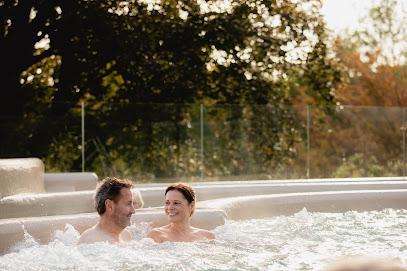
Plopsa Indoor Hasselt
Experience the thrill of Plopsa Indoor Hasselt, a magical indoor theme park in Belgium filled with fun rides, enchanting performances, and family-friendly attractions.
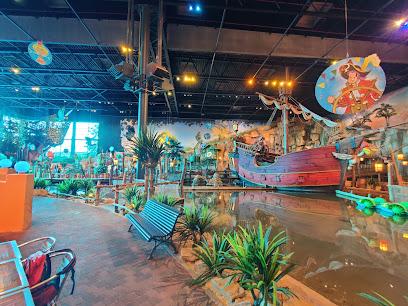
Japanese Garden
Discover the tranquil beauty of the Japanese Garden in Hasselt, a serene retreat featuring lush landscapes, ponds, and traditional Japanese architecture.
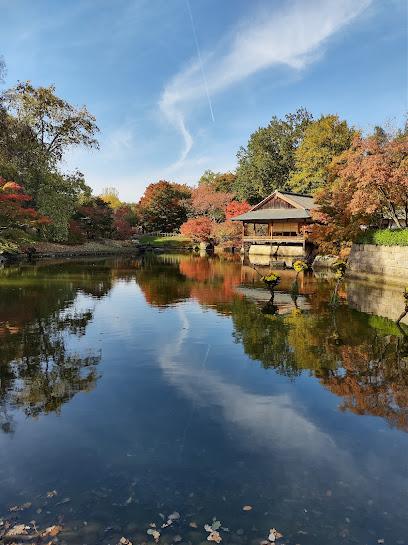
Fort Eben-Emael
Discover the historical significance and architectural marvel of Fort Eben-Emael, a must-visit military museum in Liège, Belgium.
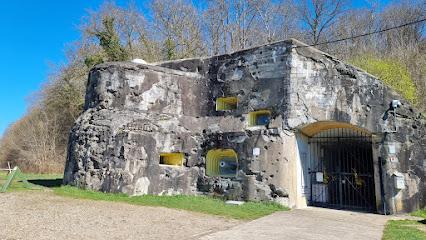
Aquarium-Museum of Liège
Explore the mesmerizing undersea world and learn about zoology at the Aquarium-Museum of Liège, a captivating family-friendly attraction.
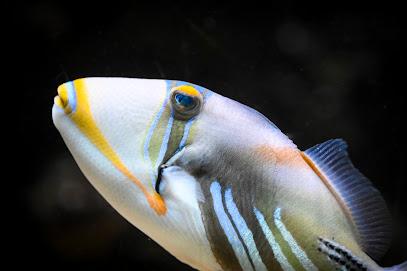
Basilica of Our Lady
Explore the Basilica of Our Lady in Maastricht, a stunning example of Romanesque architecture and a hub of spiritual pilgrimage.
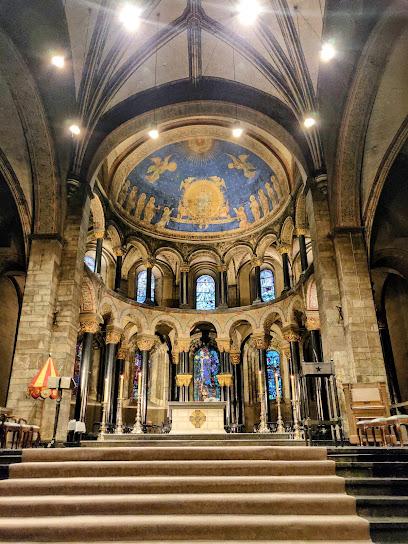
New Tivoli
Experience the vibrant atmosphere of New Tivoli, Aachen's premier stadium for sports and cultural events, where excitement meets tradition.
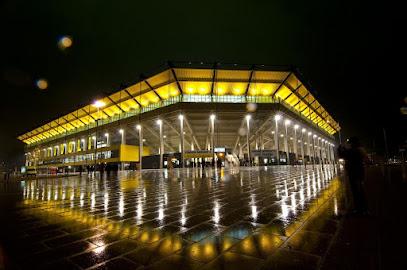
Herkenrode Abbey
Explore the historic Herkenrode Abbey in Hasselt, where nature and heritage unite in a picturesque setting perfect for all travelers.
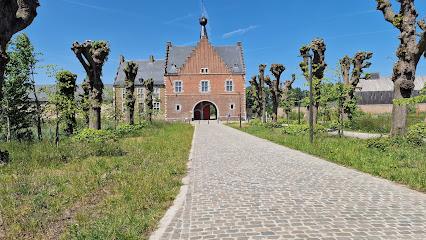
Essential places to dine
Amon Nanesse
Experience the essence of Liège at Amon Nanesse - where exquisite dining meets vibrant nightlife in a cultural hub.
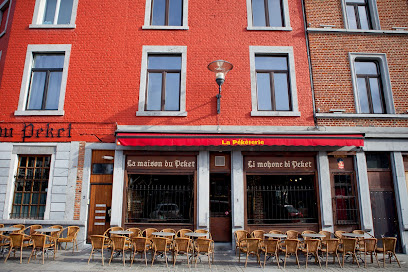
The Huggy’s Bar
Experience gourmet hamburgers in Liège at The Huggy's Bar - where quality meets flavor in a vibrant atmosphere.
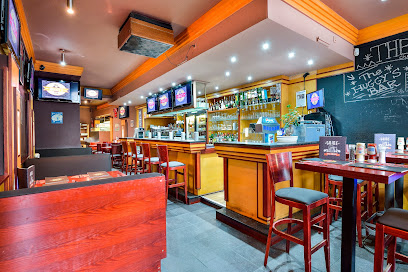
Au Point de Vue
Savor authentic Belgian cuisine at Au Point de Vue in Liège—where delightful flavors meet breathtaking views.
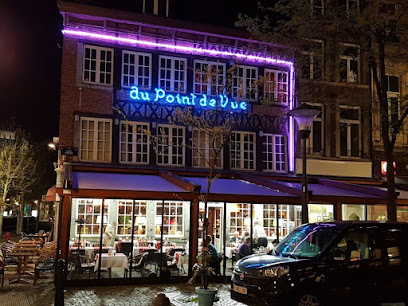
Les Sabots d'Hélène
Experience authentic barbecue cuisine at Les Sabots d'Hélène in Liège - where quality meets tradition in a cozy atmosphere.
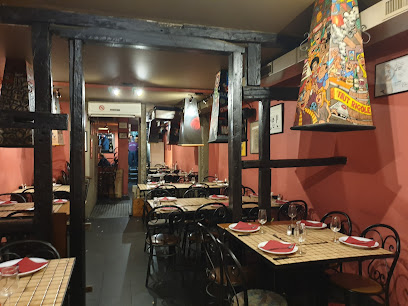
As Ouhès
Experience authentic Belgian cuisine at As Ouhès in Liège—where traditional flavors meet warm hospitality.
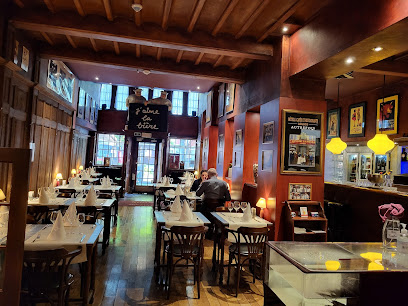
Le Régina
Savor exquisite French cuisine in an elegant setting at Le Régina, the perfect dining destination in Liège for food lovers.
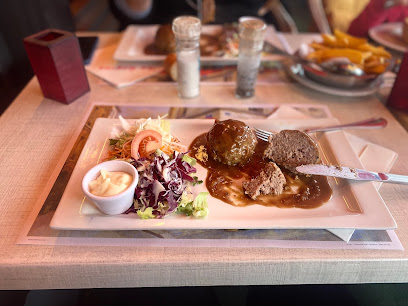
Bruit Qui Court
Experience the vibrant flavors of French and Belgian cuisine at Bruit Qui Court in Liège - a must-visit culinary destination.
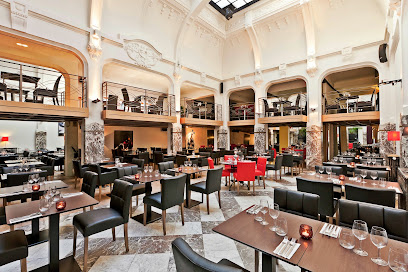
La Valaisanne
Savor authentic Swiss cuisine at La Valaisanne in Liège – fondue and raclette await you!
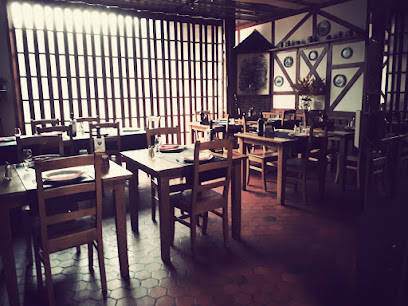
Les Terrasses Brasserie - Restaurant
Discover exquisite dining at Les Terrasses Brasserie in Liège – where modern elegance meets classic flavors.
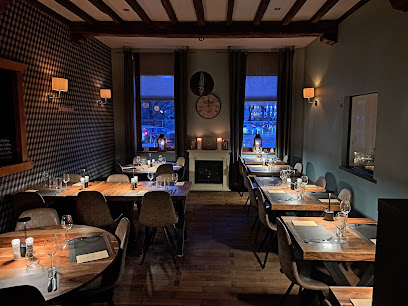
Le Zocco Chico
Experience authentic Spanish flavors at Le Zocco Chico in Liège, where delicious tapas create unforgettable moments.
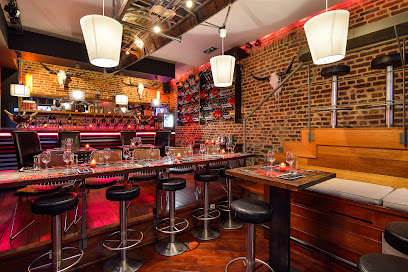
Restaurant L'Ecuyer
Experience authentic Belgian cuisine at Restaurant L'Ecuyer in Liège - a culinary delight with local flavors and cozy ambiance.
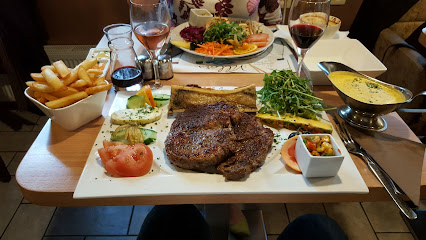
L’Industrie
Experience authentic Belgian cuisine at L’Industrie in Liège – where tradition meets innovation in every delicious bite.
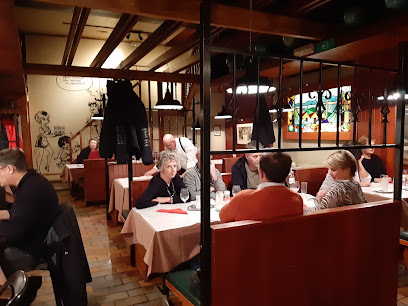
Taverne Tchantchès et Nanesse
Discover traditional Belgian flavors and vibrant pub culture at Taverne Tchantchès et Nanesse in Liège.
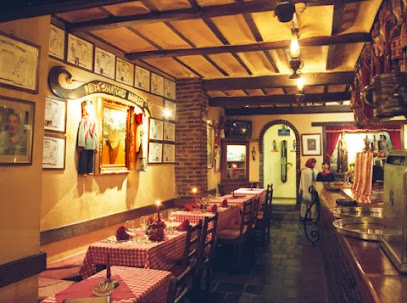
moment.
Discover the essence of Belgian dining at moment., where tradition meets modernity in every dish.
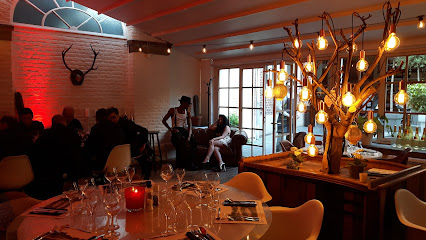
ENOTECA
Discover ENOTECA in Liège for an exquisite blend of Italian and Mediterranean cuisine in a warm and inviting atmosphere.
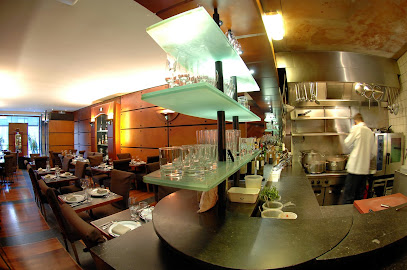
Markets, malls and hidden boutiques
Médiacité
Médiacité: A premier shopping mall in Liège offering an extensive selection of shops, restaurants, and family-friendly entertainment options.
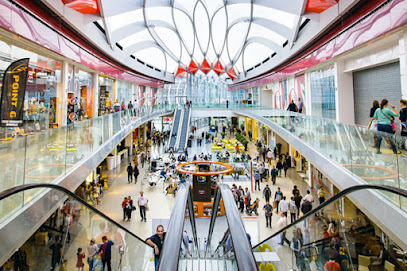
Shopping Belle-Île Liège
Experience the best of shopping and dining at Shopping Belle-Île in Liège, where local culture meets vibrant retail.
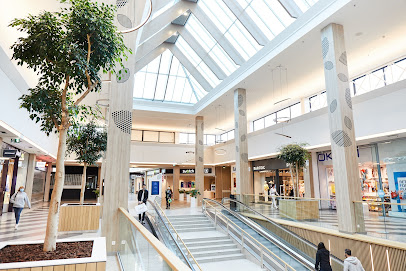
Les Galeries St Lambert
Discover the vibrant shopping and dining scene at Les Galeries St Lambert in Liège, where culture meets commerce.
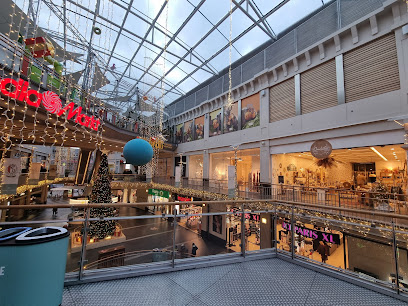
INNO
Discover the best of fashion, beauty, and lifestyle at INNO, Liège's iconic department store, featuring a vast array of products for every taste.
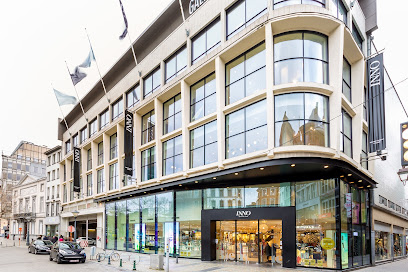
Dille & Kamille - Luik/Liège
Discover unique gifts and home goods at Dille & Kamille in Liège, where Belgian charm meets exquisite craftsmanship.
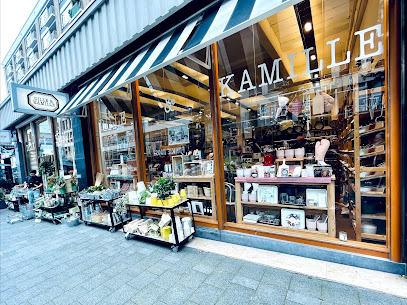
Passage Lemonnier
Explore the enchanting Passage Lemonnier in Liège, Belgium, a shopping paradise blending history, culture, and unique boutiques for an unforgettable experience.
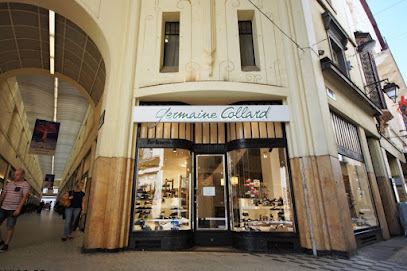
Les 4 Maisons
Explore Les 4 Maisons in Liège for unique local crafts and a delightful shopping atmosphere that reflects the heart of the region.
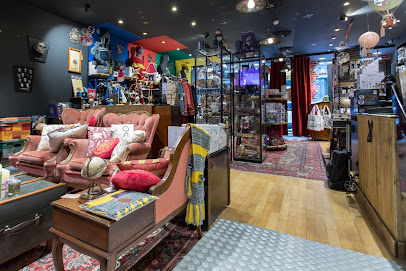
Le Reliquaire
Discover unique antiques and vintage treasures at Le Reliquaire, a charming store in the heart of Liège, Belgium.
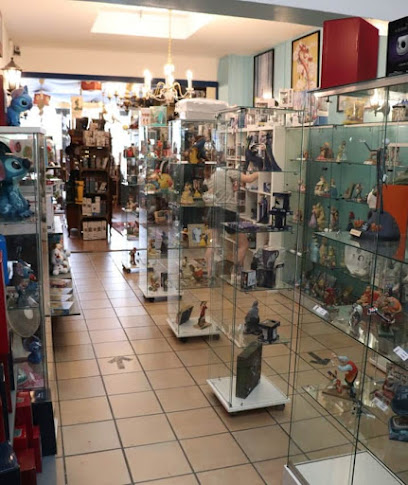
Flying Tiger Copenhagen
Uncover delightful gifts and quirky finds at Flying Tiger Copenhagen in Liège, a treasure trove for every shopper.
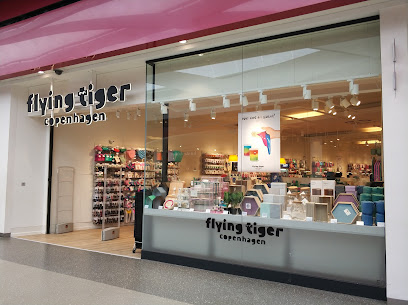
Wattitude
Explore Wattitude in Liège for unique local finds and souvenirs that celebrate Belgian culture and craftsmanship.
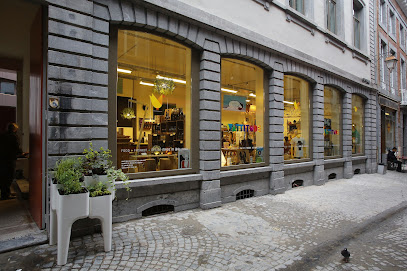
Duck
Explore Duck in Liège for a stylish shopping experience, featuring trendy men's and women's clothing along with chic accessories in a vibrant atmosphere.
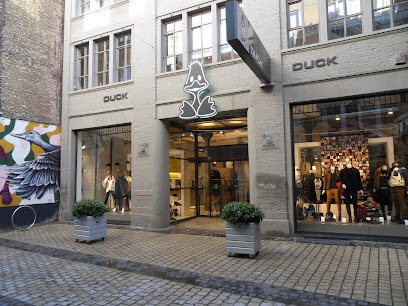
Milk concept store
Discover unique fashion at Milk Concept Store, Liège's trendy destination for men's, women's, and youth clothing that defines modern style.
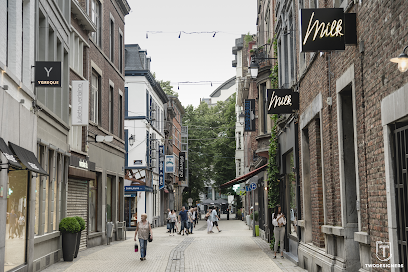
Désir et Moi Liège - Love Shop
Discover a world of sensuality and sophistication at Désir et Moi Liège, the premier adult entertainment store in Belgium.
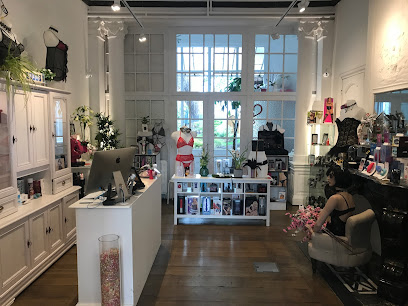
Shop Ésotérique Entre Heaven And Earth Lithothérapie Liège
Explore the enchanting Shop Ésotérique Entre Heaven And Earth in Liège, a treasure trove of metaphysical supplies, crystals, and spiritual gifts.
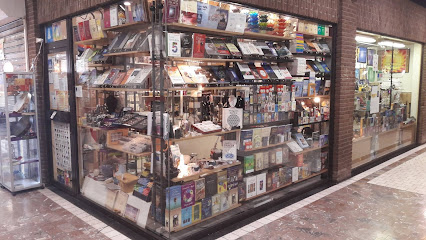
Bongo Liège
Explore Bongo Liège for unique gifts that celebrate Belgian culture, featuring local crafts, chocolates, and souvenirs in a charming setting.
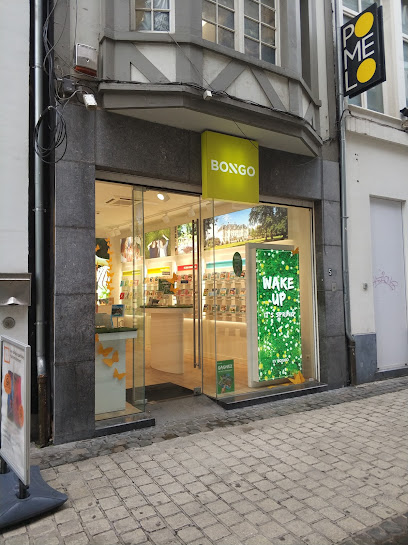
Essential bars & hidden hideouts
Warzone - Liège
Experience the vibrant nightlife of Liège at Warzone, a lively pub offering a wide selection of Belgian beers and a welcoming atmosphere.
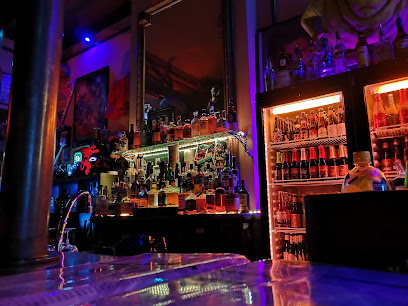
The Shamrock
Experience authentic Irish hospitality at The Shamrock, Liège's premier pub, where great food, drinks, and live music await you.
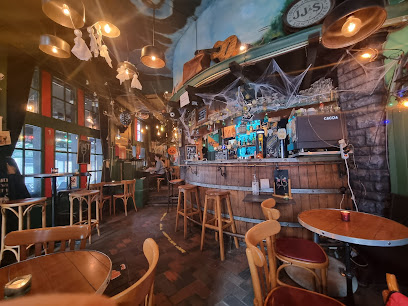
Far West
Discover the excitement of Liège nightlife at Far West Bar, where great drinks and a vibrant atmosphere await every visitor.
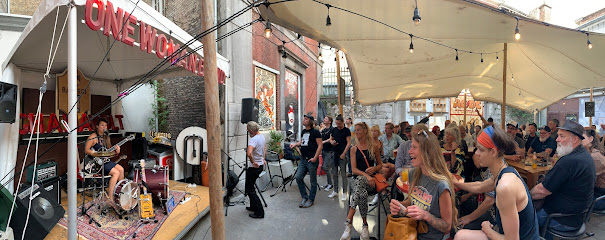
Lou's Bar
Experience the vibrant atmosphere and local charm at Lou's Bar in Liège, where great drinks and friendly service await.
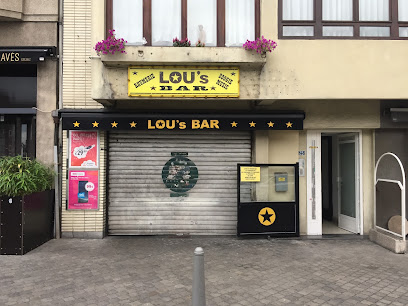
Taverne Saint Paul
Experience the heart of Liège's nightlife at Taverne Saint Paul, a vibrant pub offering a wide selection of beers and local cuisine in a welcoming atmosphere.
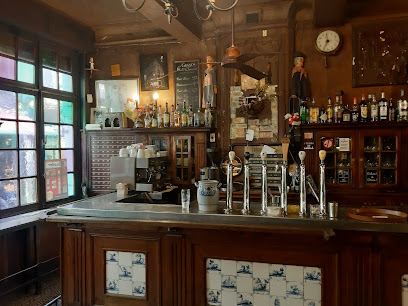
Mad Murphy's
Immerse yourself in the lively ambiance of Mad Murphy's, a popular bar in Liège, offering a fantastic drink selection and unforgettable nightlife experiences.
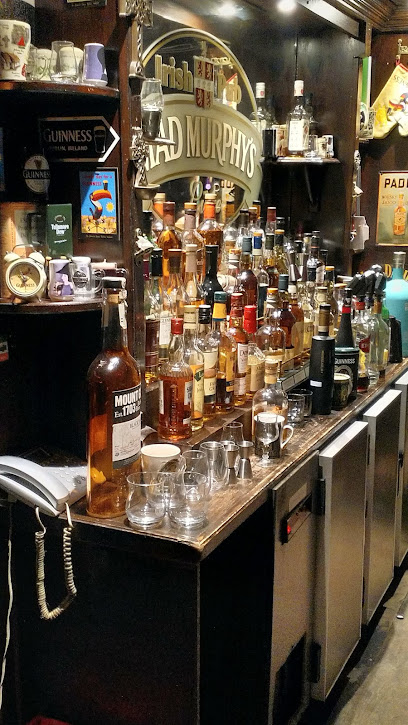
The Court St. Jean
Discover the heart of Liège's nightlife at The Court St. Jean, a lively pub offering a wide selection of Belgian beers and a welcoming atmosphere.
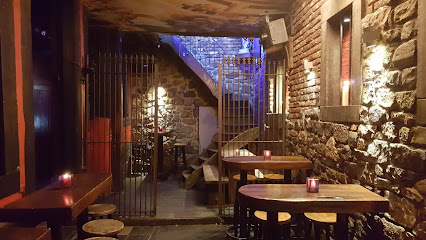
The workshop Of Gin
Discover the vibrant world of artisanal gin at The Workshop Of Gin in Liège, Belgium, where expert craftsmanship meets delightful tastings.
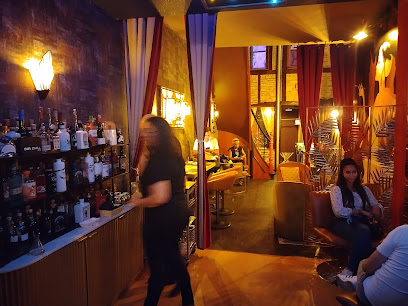
Rock'n Roses
Discover the vibrant nightlife of Liège at Rock'n Roses, a trendy bar offering a lively atmosphere and an extensive drink menu.
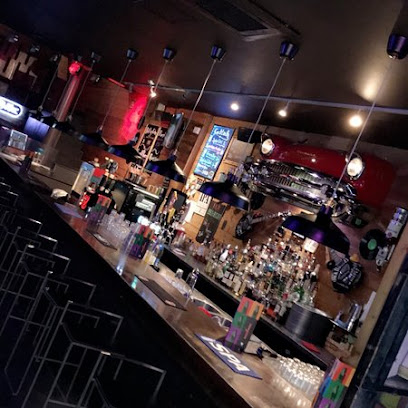
Take Off
Experience the heart of Liège's nightlife at Take Off, a lively pub offering local beers and a friendly atmosphere.
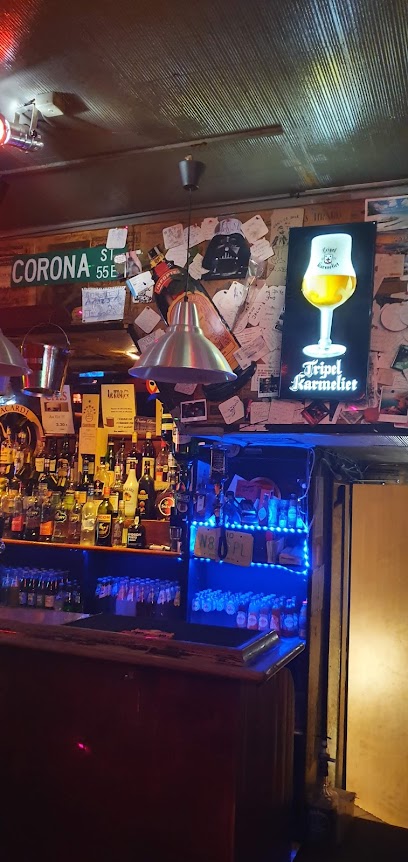
L'Orange Givrée Bar
Experience the vibrant nightlife of Liège at L'Orange Givrée Bar, where delicious drinks and a lively atmosphere await.
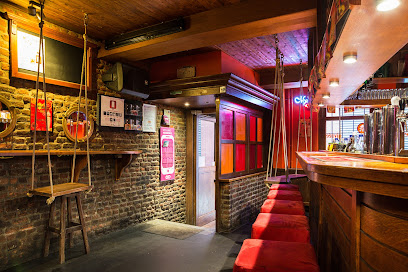
La Guimbarde
Experience the vibrant nightlife of Liège at La Guimbarde, a lively bar perfect for unwinding and socializing with friends.
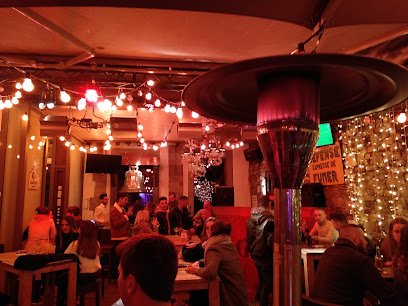
CUPPER Café
Discover the charm of CUPPER Café in Liège, where cozy ambiance meets delightful local beverages for an unforgettable experience.
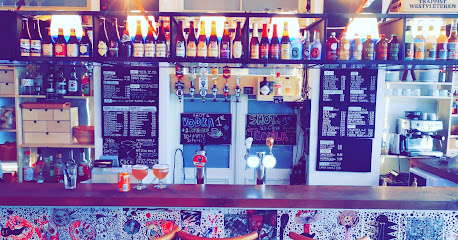
Apéro sur Meuse
Experience the vibrant culinary scene at Apéro sur Meuse, a top tapas bar in Liège renowned for its exquisite seafood dishes and riverfront ambiance.
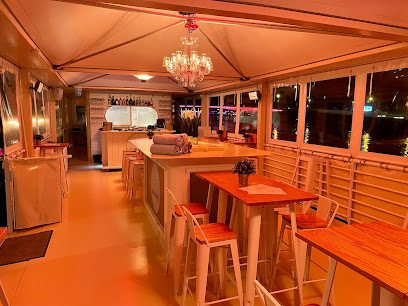
Local Phrases
-
- HelloSalut
[sa-lyu] - GoodbyeAu revoir
[o ru-vwar] - YesOui
[wi] - NoNon
[non] - Please/You're welcomeS'il vous plaît/De rien
[seel voo pleh/duh ryen] - Thank youMerci
[mer-see] - Excuse me/SorryExcusez-moi/Désolé
[ex-kew-zay mwa/dey-zo-lay] - How are you?Comment ça va?
[ko-mon sa va] - Fine. And you?Bien. Et toi?
[byen. ay twa] - Do you speak English?Parlez-vous anglais?
[par-leh voo on-glay] - I don't understandJe ne comprends pas
[zhuh nuh kohm-prahnd pah]
- HelloSalut
-
- I'd like to see the menu, pleaseJe voudrais voir la carte, s'il vous plaît
[zhuh voo-dray vwahr la kart, seel voo pleh] - I don't eat meatJe ne mange pas de viande
[zhuh nuh mahnj pah de vee-and] - Cheers!Santé!
[san-tay] - I would like to pay, pleaseJe voudrais payer, s'il vous plaît
[zhuh voo-dray pay-ay, seel voo pleh]
- I'd like to see the menu, pleaseJe voudrais voir la carte, s'il vous plaît
-
- Help!Au secours!
[o se-koo] - Go away!Allez-vous en!
[al-ay voo on] - Call the Police!Appelez la police!
[a-peh-lay la po-lees] - Call a doctor!Appelez un médecin!
[a-peh-lay un may-deh-sahn] - I'm lostJe suis perdu
[zhuh swee pair-doo] - I'm illJe suis malade
[zhuh swee mah-lad]
- Help!Au secours!
-
- I'd like to buy...Je voudrais acheter...
[zhuh voo-dray ash-tay] - I'm just lookingJe regarde juste
[zhuh ruh-gard zhust] - How much is it?Combien ça coûte?
[kom-byen sa koot] - That's too expensiveC'est trop cher
[say troh shair] - Can you lower the price?Pouvez-vous baisser le prix?
[poo-veh voo bay-say luh pree]
- I'd like to buy...Je voudrais acheter...
-
- What time is it?Quelle heure est-il?
[kel uhr eh-teel] - It's one o'clockIl est une heure
[eel eh tun uhr] - Half past (10)Dix heures et demi
[dee-ez uhr ay dem-ee] - MorningMatin
[ma-tan] - AfternoonAprès-midi
[ah-prey mee-dee] - EveningSoir
[swahr] - YesterdayHier
[yeer] - TodayAujourd'hui
[oh-zhoor-dwee] - TomorrowDemain
[duh-man] - 1Un
[uhn] - 2Deux
[duh] - 3Trois
[twah] - 4Quatre
[kat] - 5Cinq
[sank] - 6Six
[seez] - 7Sept
[set] - 8Huit
[wheet] - 9Neuf
[nuhf] - 10Dix
[dee]
- What time is it?Quelle heure est-il?
-
- Where's a/the...?Où est un/le...?
[oo eh tun/luh] - What's the address?Quelle est l'adresse?
[kel eh lad-res] - Can you show me (on the map)?Pouvez-vous me montrer (sur la carte)?
[poo-veh voo muh mohn-tray (soor la kart)] - When's the next (bus)?Quand est le prochain (bus)?
[kand eh luh pro-shan (bus)] - A ticket (to ....)Un billet (pour ....)
[uhn bee-yay (poor)]
- Where's a/the...?Où est un/le...?
History of Liege
-
Liege's history dates back to the Roman era when it was known as Leodium. Archaeological findings suggest that the area was inhabited as early as the Paleolithic period. The strategic location along the Meuse River made it an attractive settlement for both trade and defense.
-
In the 8th century, Liege became an important religious center when it was established as a bishopric by St. Lambert of Maastricht. The assassination of St. Lambert in 705 AD led to his successor, St. Hubert, moving the bishopric to Liege, which marked the city's rise as a spiritual and political hub.
-
During the High Middle Ages, Liege flourished as a center of learning and culture. The city became known for its educational institutions, including the famous University of Liege, founded in 1817. The Cathedral of St. Lambert, although destroyed during the French Revolution, was a testament to the city's medieval significance.
-
From the 10th to the 18th century, Liege was governed by Prince-Bishops who wielded both secular and religious power. This unique political structure allowed the city to maintain a degree of autonomy and foster a rich cultural and architectural heritage, visible in buildings like the Prince-Bishops' Palace.
-
Liege played a crucial role during the Industrial Revolution, becoming one of the first cities in continental Europe to industrialize. Its coal mines and steel factories turned it into an economic powerhouse, attracting workers and entrepreneurs from across Europe. The city’s industrial prowess is still evident in its landscape and museums, such as the Museum of Walloon Life.
-
Liege's strategic location made it a focal point during both World Wars. In World War I, the city's fortresses delayed the German advance, earning it the Legion of Honour from France. During World War II, Liege was heavily bombed, but its resilient spirit saw it through the reconstruction period that followed.
-
Today, Liege is a vibrant city that blends its rich history with modernity. Known for its lively cultural scene, the city hosts numerous festivals, including the famous Les Ardentes music festival and the Fêtes de Wallonie. Liege continues to be a significant educational and economic hub in Belgium.
Liege Essentials
-
Liege is well-connected by various modes of transportation. The nearest major airport is Brussels Airport (BRU), located about 90 kilometers from the city. From Brussels Airport, you can take a direct train to Liege-Guillemins station, which takes approximately one hour. Liege also has its own smaller airport, Liege Airport (LGG), which primarily handles cargo but also offers some passenger flights. Additionally, international trains like Thalys and Eurostar connect Liege with major cities such as Paris, Amsterdam, and London.
-
Liege boasts a well-developed public transportation system, including buses and trains. The TEC (Transport En Commun) buses cover the city and its suburbs. Liege-Guillemins is the main train station, offering both local and international connections. Taxis are readily available, and ride-sharing services like Uber operate in the city. For a more leisurely exploration, consider renting a bike; Liege has several cycling paths and bike rental stations.
-
Belgium uses the Euro (EUR) as its official currency. Credit and debit cards are widely accepted in hotels, restaurants, and shops. ATMs are abundant throughout the city, making it convenient to withdraw cash. However, it's advisable to carry some cash, especially when visiting smaller establishments or local markets.
-
Liege is generally a safe city for tourists, but it's wise to take standard precautions. Areas around the main train station, Liege-Guillemins, have higher crime rates, particularly at night, so exercise caution. Avoid displaying valuables and keep an eye on your belongings in crowded areas. Stick to well-lit streets and avoid walking alone at night in unfamiliar neighborhoods.
-
In case of an emergency, dial 112 for immediate assistance, which connects you to police, fire, and medical services. The main hospital in Liege is CHU de Liege, offering comprehensive medical care. Pharmacies are widely available and can provide over-the-counter medications. It's advisable to have travel insurance that covers medical emergencies.
-
Fashion: Do dress smartly when dining out or visiting cultural sites; casual wear is acceptable for sightseeing. Religion: Do respect local religious customs, especially when visiting churches; modest clothing is recommended. Public Transport: Do validate your ticket before boarding and give up your seat to elderly passengers. Don't eat or drink on public transport. Greetings: Do greet people with a handshake; a friendly 'Bonjour' is always appreciated. Eating & Drinking: Do try local specialties like Liège waffles and 'boulets à la liégeoise.' Don't refuse food or drink offerings, as it may be considered impolite.
-
To experience Liege like a local, visit the Sunday market, 'La Batte,' along the Meuse River for fresh produce and local goods. Explore the lively Carré district for nightlife and dining options. Don't miss the Montagne de Bueren, a long staircase with panoramic views of the city. For a unique experience, take a boat tour on the Meuse River to see the city from a different perspective.
Trending Landmark in Liege
Nearby Cities to Liege
-
Things To Do in Spa
-
Things To Do in Durbuy
-
Things To Do in Maastricht
-
Things To Do in Hasselt
-
Things To Do in Genk
-
Things To Do in Aachen
-
Things To Do in La Roche-en-Ardenne
-
Things To Do in Namur
-
Things To Do in Dinant
-
Things To Do in Leuven
-
Things To Do in Louvain-la-Neuve
-
Things To Do in Clervaux
-
Things To Do in Wiltz
-
Things To Do in Eindhoven
-
Things To Do in Mechelen
















